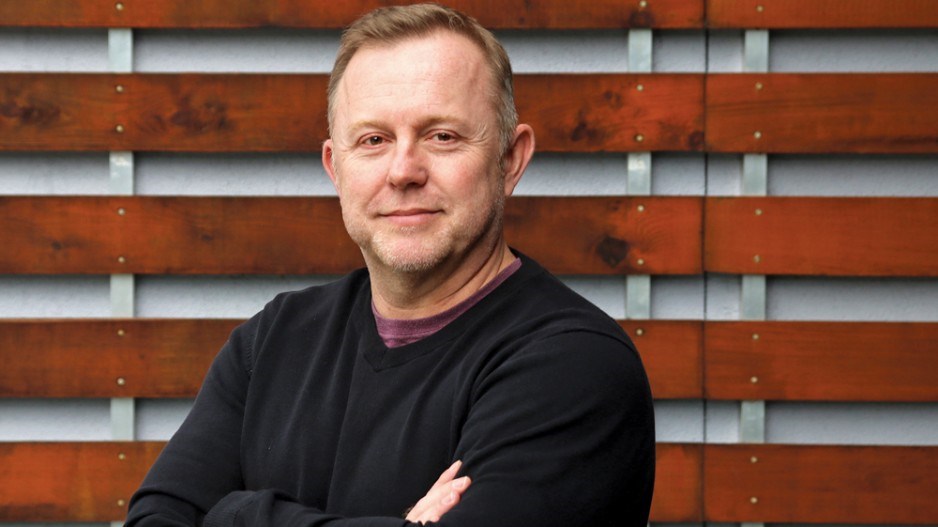Vancouver has cultivated a reputation as a city capable of transforming itself into anything from Pyongyang in The Interview to Mumbai in the Mission: Impossible franchise.
Now, new advances in tech for the metaverse find film studios calling on Vancouver to transform into pretty much anything imaginable.
“Vancouver’s makeup – sort of this mix of Hollywood North with the robust mixed reality cluster that we’ve got – we think it’s the ideal location,” said James Hursthouse, CEO of Departure Lounge Inc.
His B.C. company recently entered into a joint partnership with Los Angeles-based Metastage Inc. that will launch a facility at the Centre for Digital Media along Great Northern Way specializing in Microsoft Corp.’s (Nasdaq:MSFT) volumetric capture tech.
Facilities outfitted for volumetric capture can deploy upwards of 100 cameras to shoot people and objects from multiple angles all at once before stitching those images together into a 3D rendering.
A movie extra can step into one of these facilities where their body is scanned and a 3D image of them can be inserted into the background of a busy crowd scene at a hockey arena rather than requiring hundreds of extras to fill the stands. Or else scans of people and objects – known as digital twins – can be used for gaming, VR or enterprise applications such as training simulations.
The metaverse refers to an evolution of the internet, whereby immersive digital worlds take the place of staring at 2D screens for everyday interactions such as shopping or hanging out with friends. Don a pair of VR goggles or hold up a smartphone to one’s eye-line and users can chat with their real estate agent in real time while touring a digital twin of a home on the market.
“More and more … we’re seeing human performance captured using the volumetric stage and then brought into television and movie production in post[-production],” said Hursthouse, whose company is expected to open the Metastage Canada facility by the summer.
Microsoft Corp. (Nasdaq:MSFT) is on board with the effort, allowing Metastage to be the exclusive licensee of its volumetric capture tech in Western Canada.
Metastage has been deploying volumetric capture for just over three years in Los Angeles, where Hollywood productions have been tapping the technology, and Hursthouse said the Vancouver joint venture has already been receiving inquiries from businesses that want to use it here.
The film industry was worth $3.3 billion to the B.C. economy in the 2020-21 fiscal year – up 13 per cent from the previous year’s $2.9 billion, according to the Canadian Media Producers Association’s (CMPA) Profile 2021 report released earlier this month.
Most of B.C.’s production activity was concentrated on foreign-service work for Hollywood features and TV shows, generating $2.7 billion. That’s 52 per cent of all foreign-service work done in Canada this past year.
“Virtual production is huge right now in all of the studios,” said Mary Lim, Vancouver Film School’s (VFS) manager of education and program development lead.
The film school launched a VR/AR design and development diploma program in April 2019, and students have worked on client projects that have tapped virtual reality to help train about 200 University of British Columbia medical students.
It also recently partnered with Tesla Inc. (Nasdaq:TSLA) on a training simulation for its auto-manufacturing workers covering everything from operating equipment to assembling parts.
Beyond Capture Studios, which specializes in the same kind of motion-capture technology that brought The Lord of the Rings character Gollum to the big screen, is based at the VFS campus in Gastown, and Lim said students have been able to use the company’s facility as part of their learning.
“A former production design instructor from our film program approached me to see if he could just audit some of the [classes] in the program because he wanted to learn more,” she said. “There’s definitely a need.”
Meanwhile, Hursthouse said Vancouver’s mix of gaming, animation and film expertise will continue to draw enterprise partners that might only be able to find deep knowledge in one or two of those sectors in other cities.
“All of these things come together, and it’s really the perfect storm for volumetric capture.”




